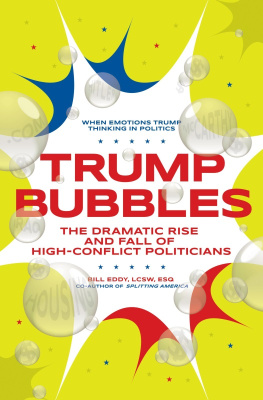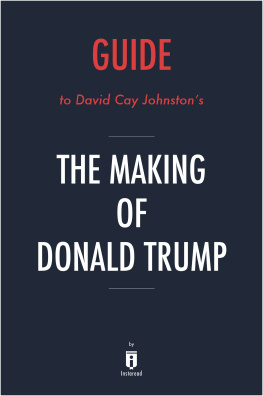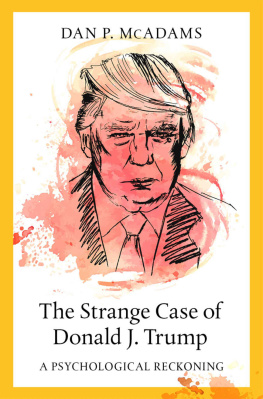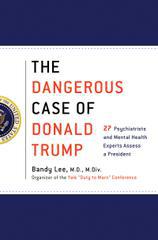Contents
Guide
Pagebreaks of the print version

The author and publisher have provided this ebook to you for your personal use only. You may not make this ebook publicly available in any way. Copyright infringement is against the law. If you believe the copy of this ebook you are reading infringes on the authors copyright, please notify the publisher at:
us.macmillanusa.com/piracy .
This work is dedicated to my grandfather, Dr. Geun-Young Lee, who believed medical practice always involves social responsibility, and to my mother, Dr. Inmyung Lee, who continued the tradition.
ROBERT JAY LIFTON, M.D.
Our situation as American psychological professionals can be summed up in just two ideaswe can call them themes or even concepts: first, what I call malignant normality , which has to do with the social actuality with which we are presented as normal, all-encompassing, and unalterable; and second, our potential and crucial sense of ourselves as witnessing professionals .
Concerning malignant normality, we start with an assumption that all societies, at various levels of consciousness, put forward ways of viewing, thinking, and behaving that are considered desirable or normal. Yet, these criteria for normality can be much affected by the political and military currents of a particular era. Such requirements may be fairly benign, but they can also be destructive to the point of evil.
I came to the idea of malignant normality in my study of Nazi doctors. Those assigned to Auschwitz, when taking charge of the selections and the overall killing process, were simply doing what was expected of them. True, some were upset, even horrified, at being given this task. Yet, with a certain amount of counselingone can call it perverse psychotherapyoffered by more experienced hands, a process that included drinking heavily together and giving assurance of help and support, the great majority could overcome their anxiety sufficiently to carry through their murderous assignment. This was a process of adaptation to evil that is all too possible to initiate in such a situation. Above all, there was a normalization of evil that enhanced this adaptation and served to present participating doctors with the Auschwitz institution as the existing world to which one must make ones adjustments.
There is another form of malignant normality, closer to home and more recent. I have in mind the participation in torture by physicians (including psychiatrists), and by psychologists, and other medical and psychological personnel. This reached its most extreme manifestation when two psychologists were revealed to be among architects of the CIAs torture protocol. More than that, this malignant normality was essentially supported by the American Psychological Association in its defense of the participation of psychologists in the so-called enhanced interrogation techniques that spilled over into torture.
I am not equating this American behavior with the Nazi example but, rather, suggesting that malignant normality can take different forms. And nothing does more to sustain malignant normality than its support from a large organization of professionals.
There is still another kind of malignant normality, one brought about by President Trump and his administration. Judith Herman and I, in a letter to the New York Times in March 2017, stressed Trumps dangerous individual psychological patterns: his creation of his own reality and his inability to manage the inevitable crises that face an American president. He has also, in various ways, violated our American institutional requirements and threatened the viability of American democracy. Yet, because he is president and operates within the broad contours and interactions of the presidency, there is a tendency to view what he does as simply part of our democratic processthat is, as politically and even ethically normal. In this way, a dangerous president becomes normalized, and malignant normality comes to dominate our governing (or, one could say, our antigoverning) dynamic.
But that does not mean we are helpless. We remain a society with considerable openness, with institutions that can still be life-enhancing and serve truth. Unlike Nazi doctors, articulate psychological professionals could and did expose the behavior of corrupt colleagues and even a corrupt professional society. Investigative journalists and human rights groups also greatly contributed to that exposure.
As psychological professionals, we are capable of parallel action in confronting the malignant normality of Trump and his administration. To do so we need to combine our sense of outrage with a disciplined use of our professional knowledge and experience.
This brings me to my second theme: that of witnessing professionals, particularly activist witnessing professionals. Most professionals, most of the time, operate within the norms (that is, the criteria for normality) of their particular society. Indeed, professionals often go further, and in their practices may deepen the commitment of people they work with to that normality. This can give solace, but it has its perils.
It is not generally known that during the early Cold War period, a special governmental commission, chaired by a psychiatrist and containing physicians and social scientists, was set up to help the American people achieve the desired psychological capacity to support U.S. stockpiling of nuclear weapons, cope with an anticipated nuclear attack, and overcome the fear of nuclear annihilation. The commission had the task, in short, of helping Americans accept malignant nuclear normality. There have also been parallel examples in recent history of professionals who have promoted equally dangerous forms of normality in rejecting climate change.
But professionals dont have to serve these forms of malignant normality. We are capable of using our knowledge and technical skills to expose such normality, to bear witness to its malignanceto become witnessing professionals.
When I did my study of Hiroshima survivors back in 1962, I sought to uncover, in the most accurate and scientific way I could, the psychological and bodily experience of people exposed to the atomic bomb. Yet, I was not just a neutral observer. Over time, I came to understand myself as a witnessing professional, committed to making known what an atomic bomb could do to a city, to tell the world something of what had happened in Hiroshima and to its inhabitants. The Hiroshima story could be condensed to one plane, one bomb, one city. I came to view this commitment to telling Hiroshimas story as a form of advocacy research. That meant combining a disciplined professional approach with the ethical requirements of committed witness, combining scholarship with activism.
I believe that some such approach is what we require now, in the Trump era. We need to avoid uncritical acceptance of this new version of malignant normality and, instead, bring our knowledge and experience to exposing it for what it is. This requires us to be disciplined about what we believe we know, while refraining from holding forth on what we do not know. It also requires us to recognize the urgency of the situation in which the most powerful man in the world is also the bearer of profound instability and untruth. As psychological professionals, we act with ethical passion in our efforts to reveal what is most dangerous and what, in contrast, might be life-affirming in the face of the malignant normality that surrounds us.










